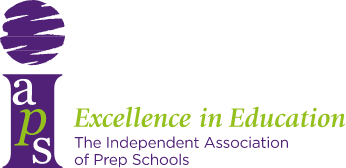Lord of the AIs

In a previous blog, Tom Beadmore-Gray - Chief Executive of the Prep Schools Trust, wrote an insightful piece (see article) on the use of artificial intelligence (AI) in prep schools and the implications it may have on the future of education.
Having shortly before this taken my own first steps in using AI in the classroom, it got me thinking about how fortunate the current generation of prep school aged children are to grow up in a world in which information is truly all around them. From smart speakers that can tell you the news and weather, to virtual reality headsets that can ‘take’ you anywhere in the world; from self-parking cars, to Google Gemini that can complete written tasks in the blink of an eye. Whereas previous generations would have had to consult encyclopaedias or their teachers, modern children have a world of information at their beck and call.
A humorous and unexpected comment from a Year 7 pupil about AI sticks in my mind. But first, the background. We had just completed reading William Golding’s Lord of the Flies - one of the great pillars of prep school literature - and I had set the class a task of summarising the main themes of the book. Once the class had shared some of their responses, we decided to ask ChatGPT to do the same. Cue great excitement as we carefully settled on the correct input, delicately typed it in, and then tentatively hit ‘enter’. In an instant whirr of cursor blinks, there appeared a coherent and clear summary of the main themes of the novel which left the class astonished. A spontaneous discussion followed about the potential pros and cons of using ChatGPT: how important it was to be able to enter an accurate prompt, as well as how vital it was that we checked the automated response for reliability. It was then that the comment was made, and it took the class and I by surprise. A boy said how he thought it was important to say ‘please’ and ‘thank you’ when making a prompt. In this way, he explained, when AI becomes self-aware and takes over the world, it would remember who had been kind to it and spare them a terrible fate. We all laughed! It was one of those unforeseen precocious comments - perhaps based on something previously seen online - but it sure got me thinking.
The pupils in the class are digital natives used to watching whole series at once on Netflix and choosing a film on their smart TVs via voice control. They never had to wait a week for the next episode of a show to air or experience the sad reality of getting to a video shop too late and having your desired movie cassette unavailable. The modern child is used to - at least digitally - having what they want, when they want it. There is seldom a need to be patient. There is hardly a struggle to achieve. It is perhaps not too dissimilar to the boys stranded on that island in Golding’s novel. Free from authority and rules, with beaches to play on, fruit to eat, and pigs to hunt. Perhaps now the equivalent is the freedom of social media, virtual games, and AI chatbots. And though this writing might segue into the importance of monitoring childrens’ online use, which is a vitally important topic, it will head somewhere else instead.
Sometimes education is not about giving children what they should have, but rather what they truly need. AI is going nowhere and will doubtless take over our lives. Hopefully not in the dystopian and cataclysmic manner in which that Year 7 boy described, but it will surely become innate. So what do our current pupils need? I believe it’s kindness, it’s patience, it’s discernment, it’s the ability to struggle through a challenge - all the qualities that one cannot get artificially. We need to teach with and about AI - it is the future - but we cannot forget to instil genuine human qualities that our pupils have perhaps not naturally acquired through their experience.
Just as Ralph was quizzed by the rescuer about the state of the island’s degeneration at the end of Golding’s novel, we too may be challenged by future generations about our handling of AI in education. When enhancing our lives through this precious and powerful tool, it is important not to lose sight of what makes us human in the first place.
Hugh Freese, Senior Deputy Head at Cothill House



